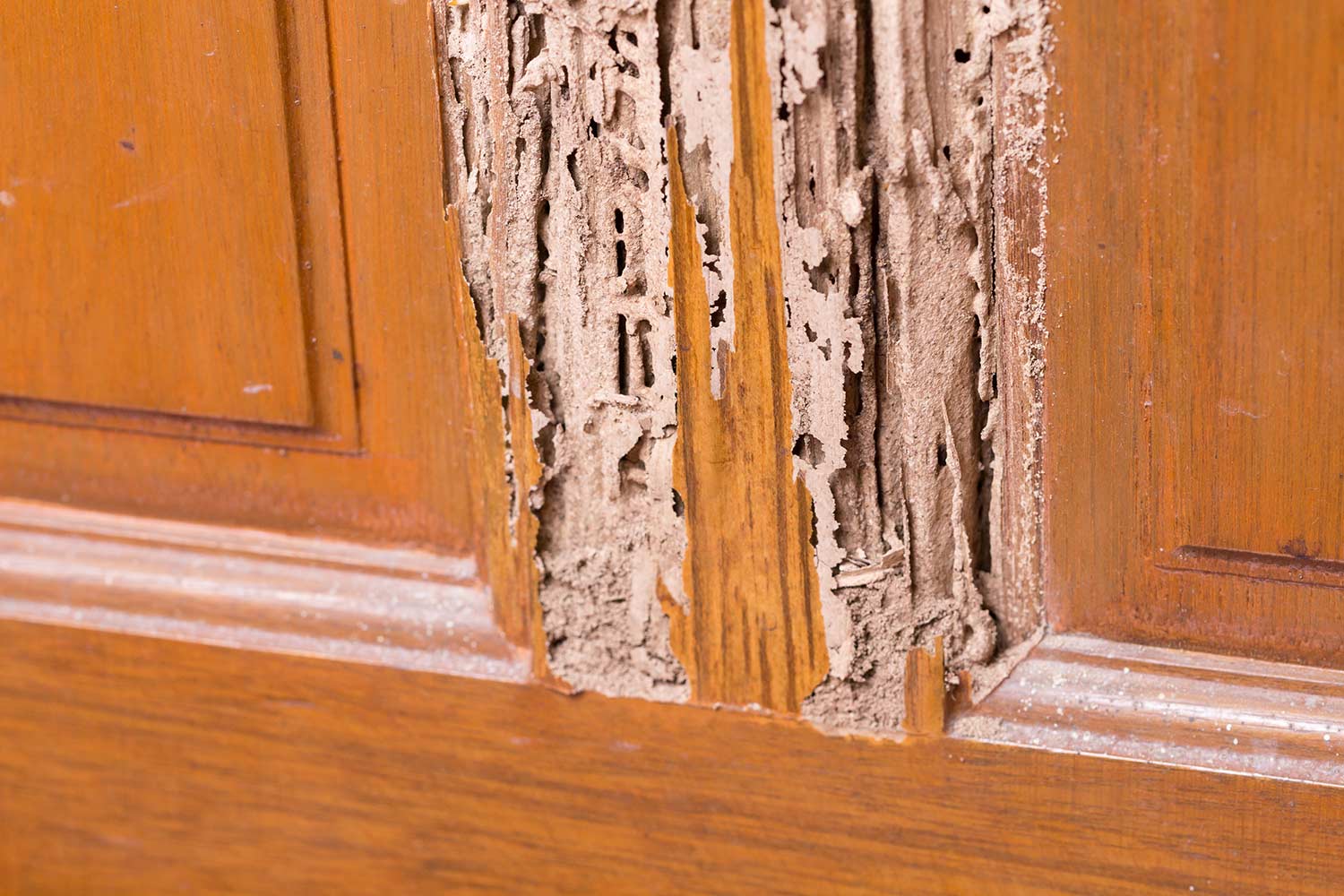
Termites are a common problem in Florida and can cause significant damage to your home. Selling a home with termite damage can be a challenge, but it’s not impossible. Here are some tips to help you sell your Florida house with termite damage.
- Get a Termite Inspection
Before selling your home, it’s important to get a termite inspection. A professional inspector can identify any active termite infestations and assess the damage that has already been done to your home. This information can be useful when determining the best course of action for selling your home.
- Make Repairs
Once you know the extent of the termite damage, you’ll need to make repairs to your home. This can include replacing damaged wood, repairing structural damage, and treating any active termite infestations. It’s important to work with a licensed contractor who has experience in dealing with termite damage to ensure that the repairs are done correctly.
- Disclose the Termite Damage
When selling your home, it’s important to disclose any termite damage to potential buyers. This is required by law in Arizona, and failing to disclose the damage can result in legal issues down the line. Disclosing the damage upfront can also help you avoid any surprises during the home inspection process.
- Price Your Home Accordingly
When selling a home with termite damage, you may need to adjust your asking price. Buyers may be hesitant to purchase a home with termite damage, and you may need to offer a lower price to entice them to buy. It’s important to work with a real estate agent who has experience in selling homes with termite damage to determine the best pricing strategy.
- Consider Selling to a Cash Buyer
If you’re having trouble selling your home with termite damage, you may want to consider selling to a cash buyer. Cash buyers are investors who are willing to purchase your home as-is, without the need for repairs or renovations. They may be more willing to overlook termite damage and can help you avoid the traditional home-selling process.
In conclusion, selling a home with termite damage in Florida can be a challenge, but it’s not impossible. By getting a termite inspection, making repairs, disclosing the damage, pricing your home accordingly, and considering selling to a cash buyer, you can sell your home and move on to your next chapter. Remember to work with professionals who can help you through the process and ensure that you’re making the best decision for your financial situation.

Foreclosure can be a daunting and stressful experience for any homeowner. In Florida, many homeowners are struggling to keep up with their mortgage payments due to financial hardship or unforeseen circumstances. Fortunately, there are resources available to help you avoid foreclosure and keep your home. Here are some steps you can take to get help avoiding foreclosure in Florida.
- Contact Your Lender
The first step in avoiding foreclosure is to contact your lender. They may be able to work out a payment plan or modify your loan to make your payments more manageable. It’s important to be upfront and honest about your financial situation to increase your chances of getting help.
- Seek Assistance from a Housing Counselor
Housing counselors can provide free or low-cost advice to homeowners who are struggling to make their mortgage payments. They can help you understand your options and negotiate with your lender on your behalf. The U.S. Department of Housing and Urban Development (HUD) provides a list of approved housing counseling agencies in Florida.
- Explore Government Programs
There are several government programs available to help homeowners avoid foreclosure, including the Home Affordable Modification Program (HAMP), the Home Affordable Refinance Program (HARP), and the FHA Special Forbearance Program. These programs can provide assistance with loan modifications, refinancing, or temporary relief from payments.
- Consider Selling Your Home
If you’re unable to keep up with your mortgage payments, selling your home may be a viable option to avoid foreclosure. A short sale or a deed in lieu of foreclosure can help you avoid the negative impact of a foreclosure on your credit score. Work with a real estate agent who has experience in these types of sales to guide you through the process.
- Consult with an Attorney
If you’re facing foreclosure, it may be helpful to consult with an attorney who specializes in foreclosure defense. They can provide legal advice and represent you in negotiations with your lender.
In conclusion, if you’re struggling to make your mortgage payments in Florida, there are resources available to help you avoid foreclosure. Contacting your lender, seeking assistance from a housing counselor, exploring government programs, considering selling your home, and consulting with an attorney are all steps you can take to protect your home and your financial future. Remember, it’s important to act quickly and be proactive in seeking help to avoid foreclosure.

If you own a property in Florida with code violations, you may feel overwhelmed and unsure of what to do next. Code violations can occur for various reasons, such as neglecting to maintain the property or making unpermitted modifications. These violations can result in hefty fines, liens on the property, and even legal action. Fortunately, there are options available to sell your property quickly for cash, even with code violations.
- Identify the Code Violations
The first step is to identify the code violations on your property. Contact the local code enforcement department to request an inspection and review the violations. This will provide a clear understanding of what needs to be addressed and the potential consequences.
- Assess the Cost of Repairs
Once you know the code violations, you need to assess the cost of repairs. This will help determine whether it’s worth repairing the property or selling it as-is.
- Research Home Buying Companies
If you decide to sell the property, research home buying companies that specialize in purchasing properties with code violations. These companies can provide a fair cash offer for your property and take care of any necessary repairs.
- Request a Cash Offer
Request a cash offer from the home buying company. They will provide an offer based on the condition of the property, including any code violations.
- Review the Offer
Review the cash offer and ask any questions you may have. Make sure you understand the terms of the offer, including any fees or contingencies.
- Accept the Offer
If you’re satisfied with the offer, accept it. The home buying company will provide a hassle-free closing process and can complete the sale in as little as seven days.
- Complete the Sale
Once you’ve accepted the offer, the home buying company will handle the rest of the sale process. They will provide the funds at closing and take care of any necessary repairs or code violations.
Selling a property with code violations in Florida can be a daunting task, but it’s not impossible. By identifying the violations, assessing the cost of repairs, researching home buying companies, requesting a cash offer, reviewing the offer, accepting the offer, and completing the sale, you can sell your property quickly for cash. This can provide much-needed relief from fines and legal action and allow you to move on to the next chapter of your life with peace of mind.

Deed problems can be a nightmare for homeowners. Whether it’s a missing or incorrect signature, an outdated or inaccurate legal description, or a dispute over ownership, deed problems can stall or even prevent a home sale. Fortunately, there are options available for homeowners facing deed problems who need to sell their homes quickly.
- Identify the Deed Problem
The first step is to identify the deed problem. This may require the assistance of a real estate attorney or title company. The issue must be resolved before the sale of the property can proceed.
- Assess the Cost of Resolving the Deed Problem
Once the problem has been identified, you need to assess the cost of resolving the deed problem. This may include legal fees, title searches, and any other expenses associated with correcting the deed.
- Research Home Buying Companies
If you decide to sell the property, research home buying companies that specialize in purchasing properties with deed problems. These companies can provide a fair cash offer for your property and take care of any necessary repairs.
- Request a Cash Offer
Request a cash offer from the home buying company. They will provide an offer based on the condition of the property, including any deed problems.
- Review the Offer
Review the cash offer and ask any questions you may have. Make sure you understand the terms of the offer, including any fees or contingencies.
- Accept the Offer
If you’re satisfied with the offer, accept it. The home buying company will provide a hassle-free closing process and can complete the sale in as little as seven days.
- Complete the Sale
Once you’ve accepted the offer, the home buying company will handle the rest of the sale process. They will provide the funds at closing and take care of any necessary repairs or deed problems.
Selling a home with a deed problem can be a challenging process, but it’s not impossible. By identifying the problem, assessing the cost of resolving it, researching home buying companies, requesting a cash offer, reviewing the offer, accepting the offer, and completing the sale, you can sell your property quickly for cash. This can provide much-needed relief and allow you to move on to the next chapter of your life with peace of mind.

Selling a house can be a challenging process, but selling a house full of trash can be even more daunting. It can be overwhelming to think about the amount of work and effort required to clean up the mess, let alone find a buyer who is willing to take on the task.
So, how can you sell your Florida house full of trash? Here are some tips to consider:
- Hire a Junk Removal Service
Before you can even think about selling your house, you need to get rid of the trash. Hiring a junk removal service can be an excellent way to get the job done quickly and efficiently. These services specialize in removing large amounts of garbage, so they can make quick work of your trash-filled home.
- Clean and Organize
Once the junk is removed, it’s time to clean and organize the house. A thorough cleaning can help make the house more appealing to potential buyers. You’ll want to make sure that all surfaces are clean, and that any clutter is put away. You may also want to consider hiring a professional cleaning service to help with this step.
- Assess the Damage
Depending on the amount of trash in your home, there may be some damage that needs to be repaired. This could include things like broken floors, damaged walls, or even structural damage. You’ll need to assess the extent of the damage and decide if it’s worth repairing before putting the house on the market.
- Price Accordingly
When selling a house full of trash, you’ll need to adjust your expectations regarding the sale price. It’s unlikely that you’ll be able to sell the house for as much as you would if it were in good condition. You’ll need to take into account the cost of repairs, the time and effort required to clean up the mess, and the overall condition of the house.
- Be Transparent
When selling a house full of trash, it’s essential to be transparent about the condition of the property. Make sure that potential buyers are aware of the trash and the work that needs to be done to clean it up. This will help you avoid any surprises later on in the sales process.
In conclusion, selling a house full of trash can be a challenging task, but it’s not impossible. By following these tips, you can increase your chances of finding a buyer who is willing to take on the task of cleaning up the mess. Just remember to be transparent, price the house accordingly, and don’t be afraid to hire professionals to help get the job done.







